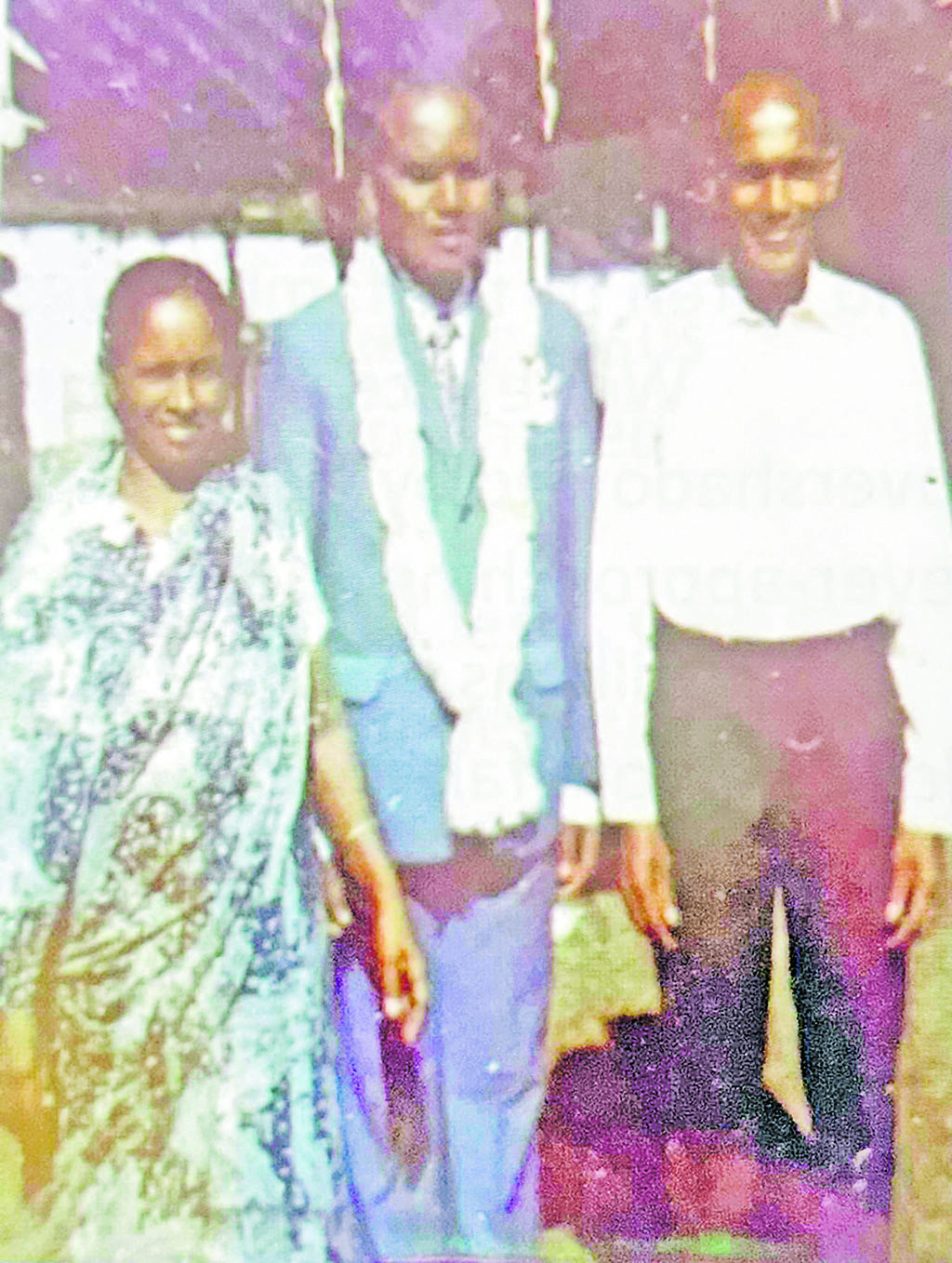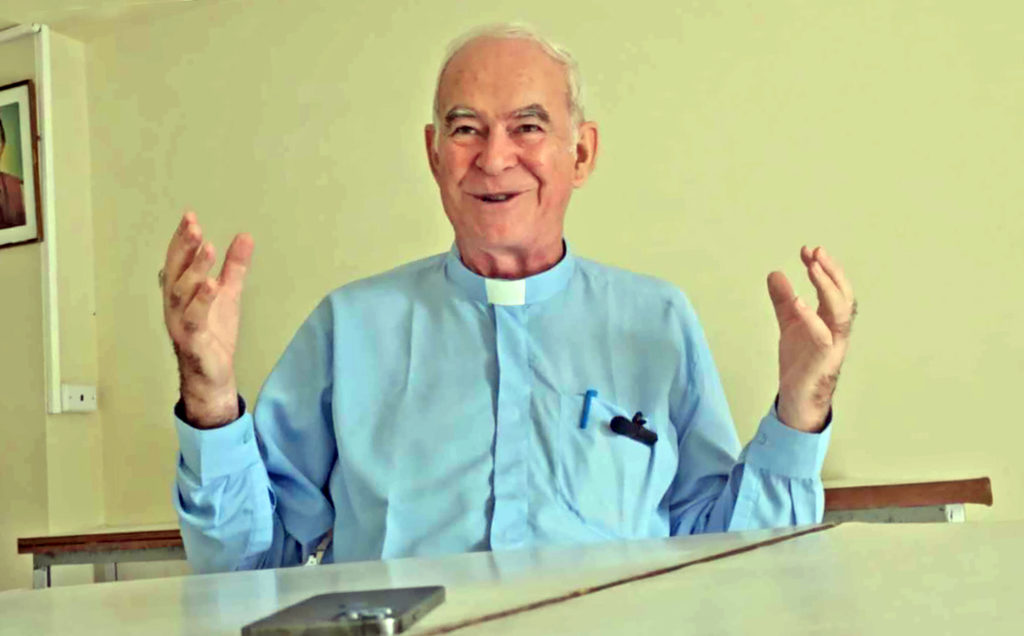FOLLOWING Father Frank Hoare, from learning Hindi in Suva and then moving to Naleba, we learn that his journey was less about preaching and more about presence.
In April 1975, Fr Hoare, then a young Irish missionary, began to feel the weight and wonder of being fully immersed in a place far from the cold chapels of his youth.
He was quietly motivated by the scriptures, particularly Colossians 3:23: “What you do, work heartily, as for the Lord and not for men.”
This piece of biblical wisdom hung quietly in the heart of Naleba, where Fr Hoare continued his decades-long mission of love, language, and listening.
And from what Fr Hoare was experiencing, we discovered that Naleba is a settlement of contrasts, Hindu, Muslim and Christian families living side by side, bound together by land, labour and the unpredictable nature of rural life.
This part of his story begins not with a grand event, but a quiet invitation to “explain the meaning of Easter in local primary schools”.
Good Friday?
“I used a scroll of large pictures, of Jesus’ trial, his cross and crucifixion, to illustrate the message,” Fr Hoare said.
“I was trying to show students the depth of Jesus’ suffering, and his radical forgiveness.”
But it wasn’t the explanation that left its mark. It was a single question from a Hindu boy that shifted something in the young priest, “Why is the day Jesus was killed called Good Friday? Surely, it was a bad Friday?”
For a moment, Fr Hoare was stilled by the child’s question, one rooted not in scepticism, but in sincere spiritual curiosity.
Raised in the philosophy of the four Hindu yuga, the boy had expected a divine figure like Jesus to conquer evil through power.
Instead, he heard of a god who allowed himself to be killed, who chose love over vengeance.
“I had never asked myself that question,” he said.
“It made me think more deeply about my own faith. Jesus overcame violence not by retaliating, but by forgiving. He conquered death not with might, but with mercy.”
This lesson, born from a classroom exchange, would stay with him, not just as theology, but as a way of living in a community where spiritual differences were not threats, but invitations to reflect more deeply.
Eggs and elders
As Easter approached, memories of Irish traditions resurfaced.
“In Ireland eggs laid on Good Friday were marked with a cross and eaten on Easter Sunday. They were simple but sacred.”
It was a humble ritual rooted in a deep yearning: to celebrate life despite the looming shadow of death.
Across cultures, this same hope pulses beneath the surface. In India, prayers for deliverance from falsehood, darkness and death have echoed for millennia.
In Naleba, Fr Hoare said that yearning for truth and light was just as present, though spoken in different tongues.
“Jesus didn’t escape death.
“He endured it. And in doing so, he broke its power. The resurrection wasn’t just a miracle, it was the beginning of a new creation.”
Weddings and culture
clashes
By late April, a new tension emerged, this time not spiritual, but social.
Fr Hoare was told a Catholic wedding had been planned for the school holidays without consulting him. Worse still, it clashed with Sunday mass.
“The families had already sent invitations.
“When I protested, they insisted the date couldn’t change. It was set.”
With diplomacy and a firm voice, Fr Hoare reached a compromise: the mass would follow the wedding, and the bride and groom would attend. But cultural expectations soon collided.
In traditional custom, a newly-married couple must go straight to the groom’s home, no detours, no public appearances. Walking to church after the wedding was, to some elders, maybe a violation of sacred order.
“The elders were angry.
“They said it was against God to go to church before going home.”
Fr Hoaren said this was more than just a scheduling issue. It revealed how easily even shared faith could be shaped and strained by cultural nuance.
“It was a culture clash. ‘
“Each side assumed the other would understand. And neither did.”
The sacred in small things
Despite such moments of friction, Naleba was transforming and so was he.
One Thursday in May, a small wooden tabernacle was installed in the church.
Until then, the Blessed Sacrament had been reserved at the presbytery. But this new addition, modest, unadorned, marked a turning point.
“Now Jesus will sleep in his house, not yours,” whispered Maria, an elderly widow.
“He belongs with us.”
His days were filled with small conversations, silent prayers and sudden invitations and some awkward, some urgent.
Like the time he was called to accompany a woman embroiled in scandal to her family home, only to sit ignored in the corner of a tense family meeting.
“I wasn’t asked to speak. I was just there.
“And yet, maybe just being there meant something.”
In Naleba, ministry rarely came with certainty or control.
But in every encounter, whether it be a boy’s bold question, a father’s quiet longing, or a widow’s simple faith, Fr Hoare found something deeper than doctrine.
n In next week’s edition, death comes to Naleba and Fr Hoare is called to navigate complex funeral rites and cultural boundaries. He learns that grief, like faith, speaks many languages.
Fr Hoare officiated at his first wedding ceremony as a priest when David Krishna (pictured with parents) married his bride. Picture: SUPPLIED



